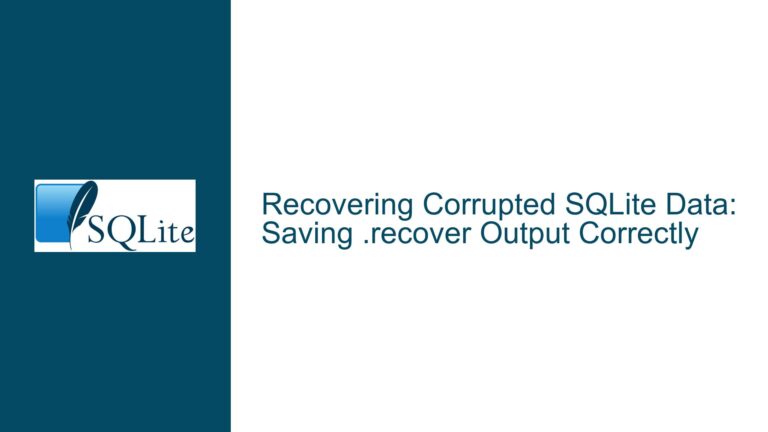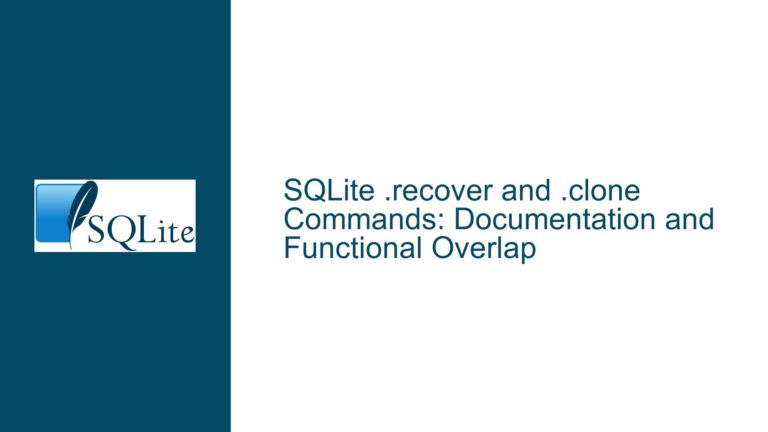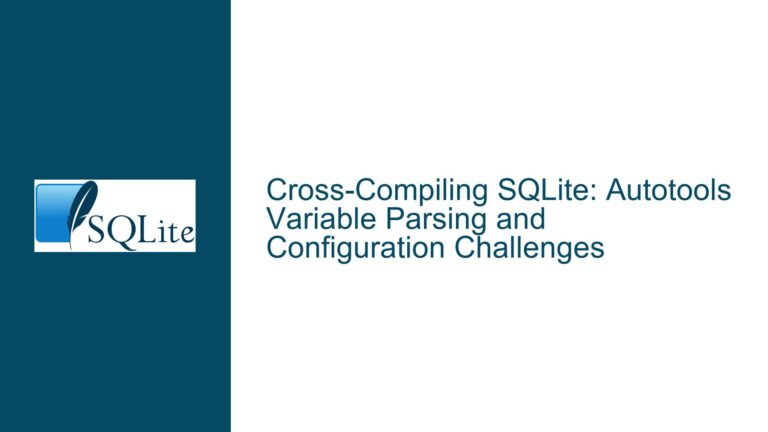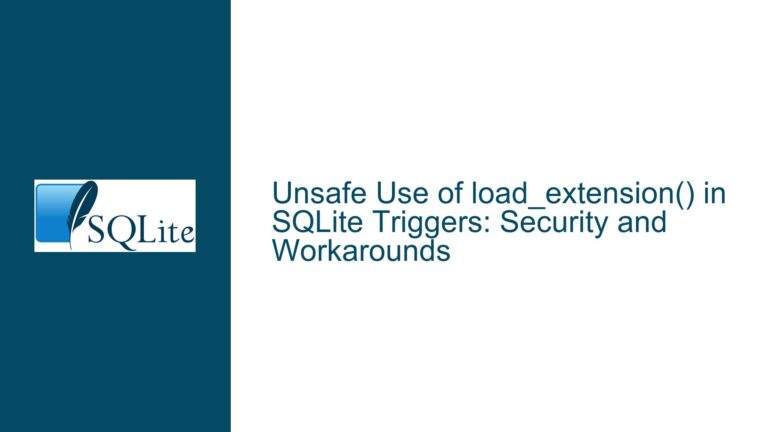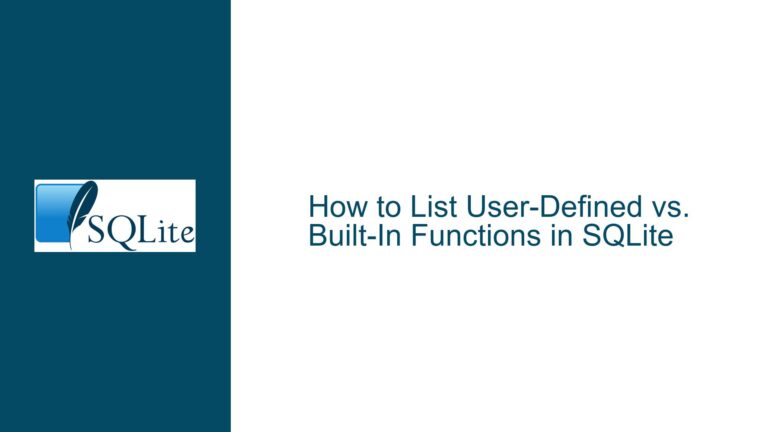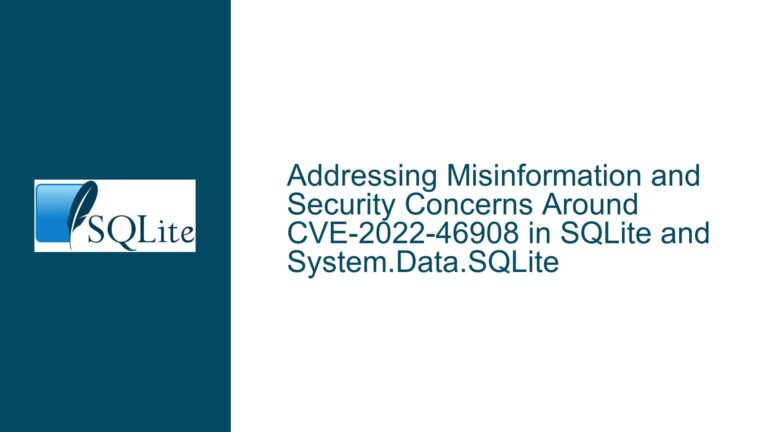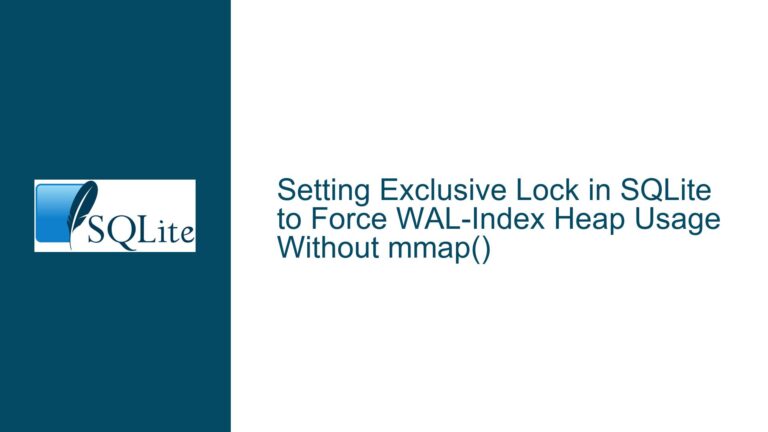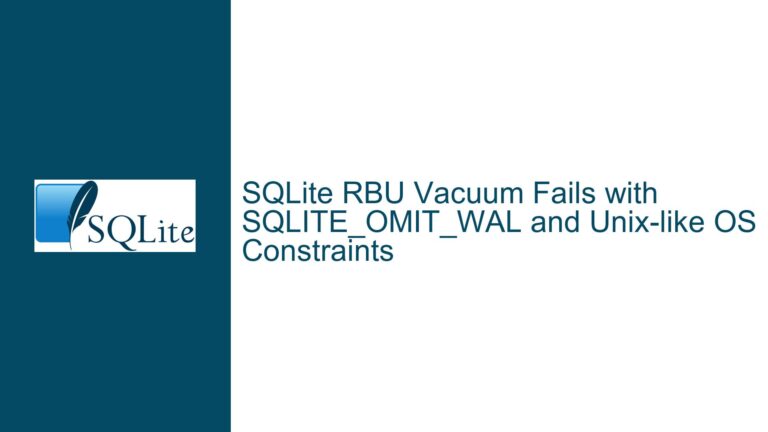Recovering Corrupted SQLite Data: Saving .recover Output Correctly
Understanding the .recover Command and Output Handling in SQLite Issue Overview: Failed Database Recovery via .recover and .save Commands The core problem revolves around attempting to recover data from a corrupted SQLite database file (e.g., a Kobo e-reader database) using the .recover command in the SQLite CLI (Command-Line Interface). The user observed that executing .recover…
